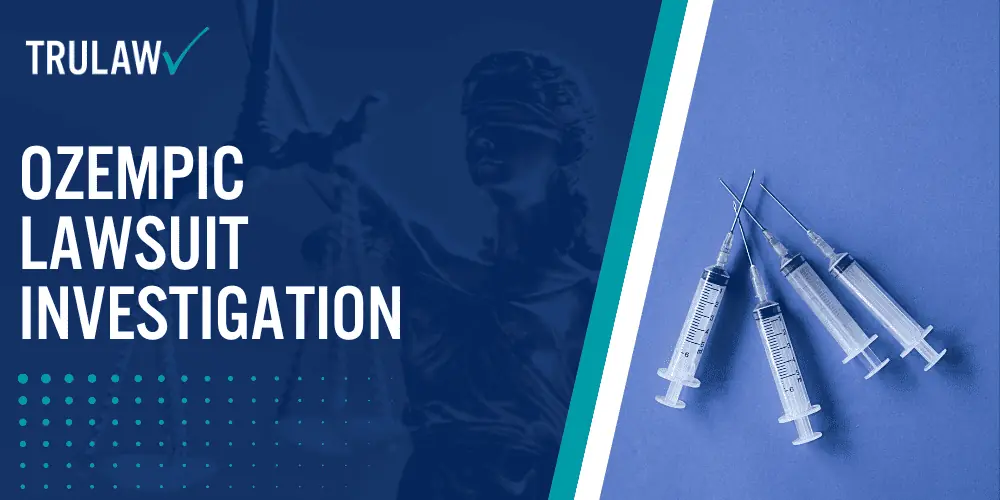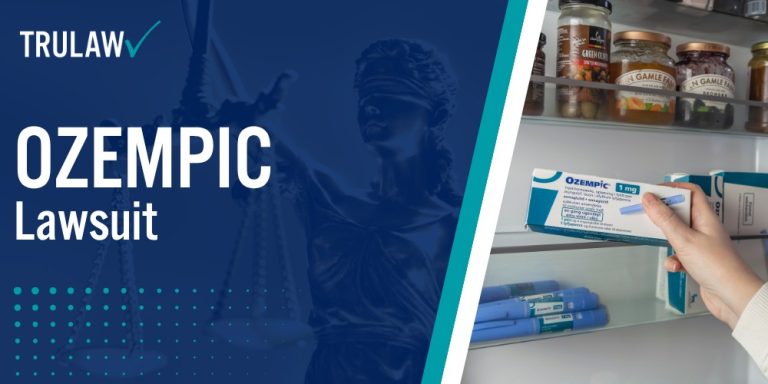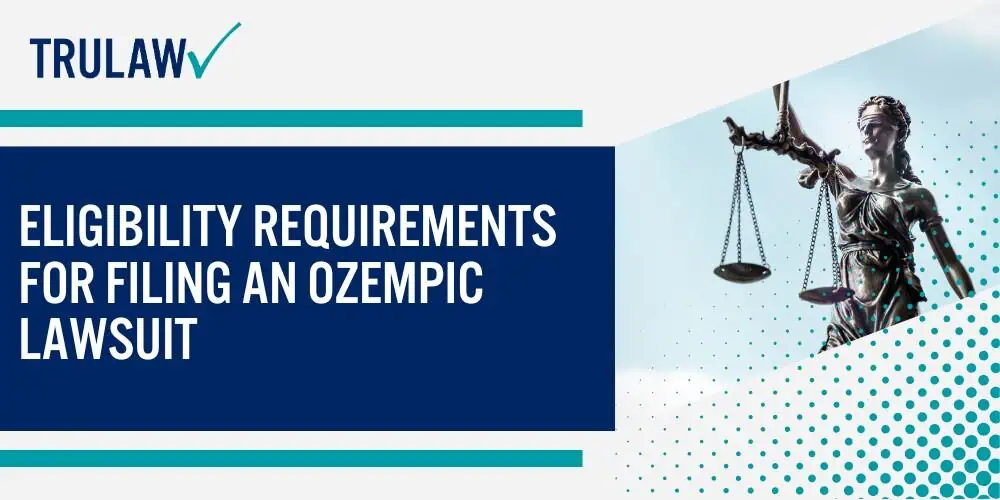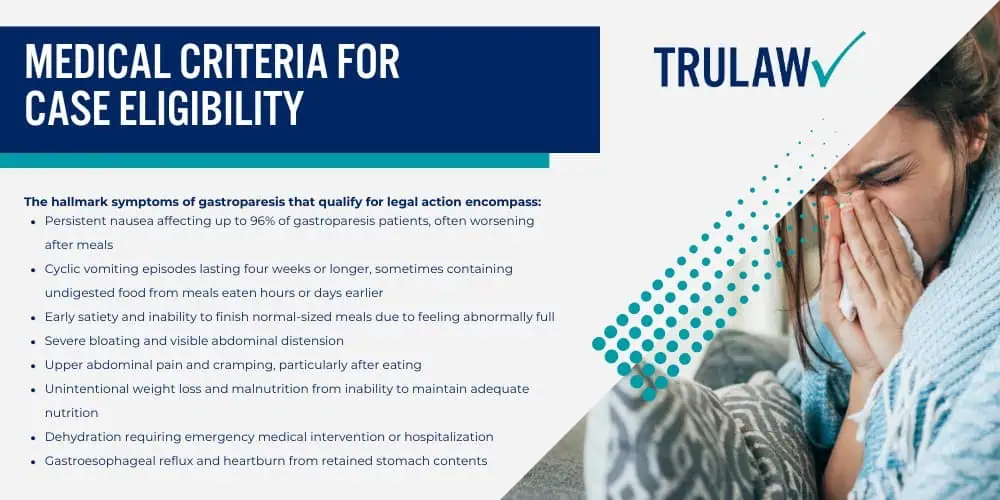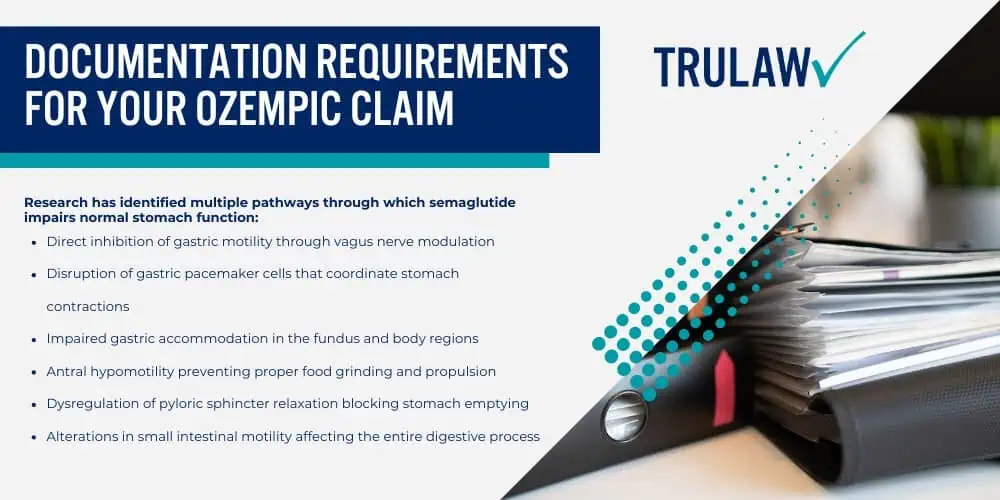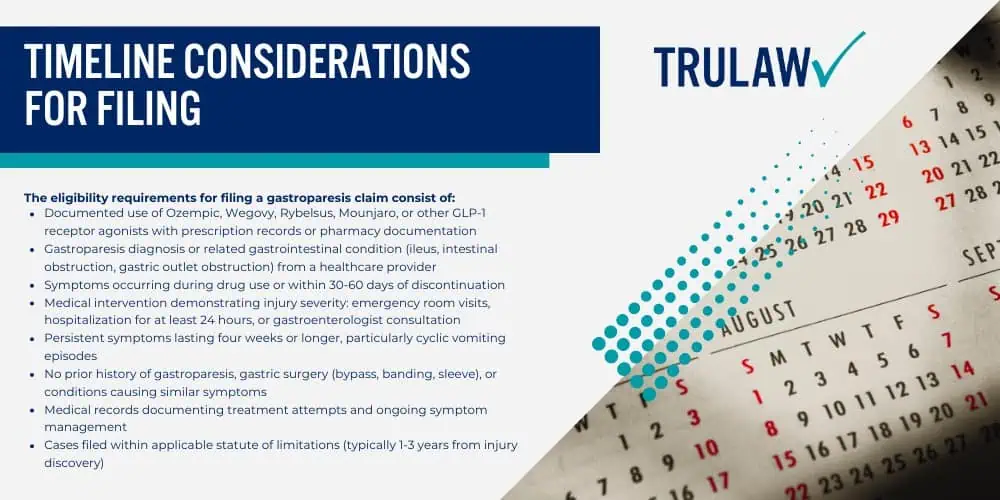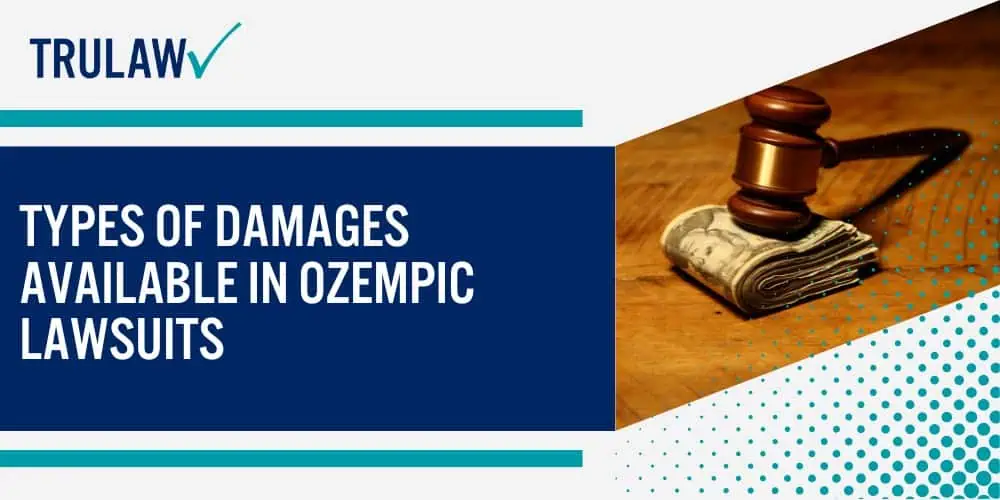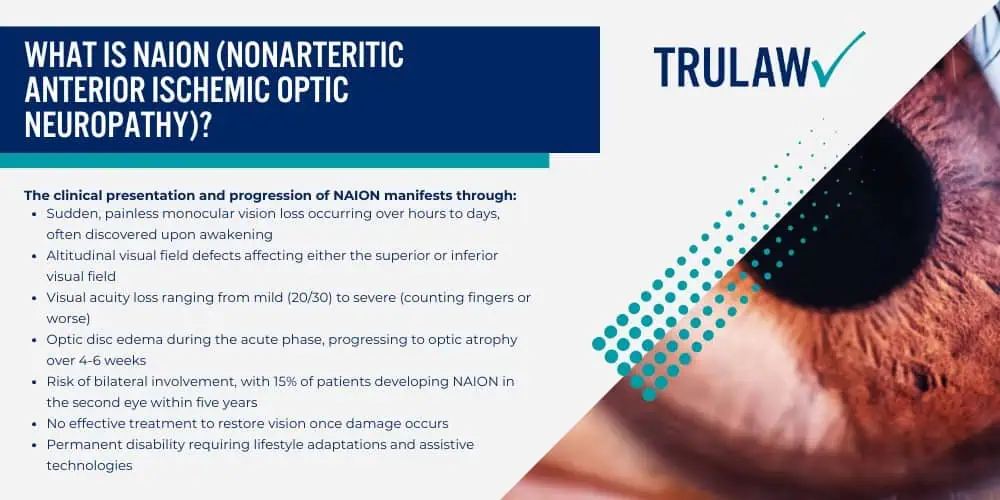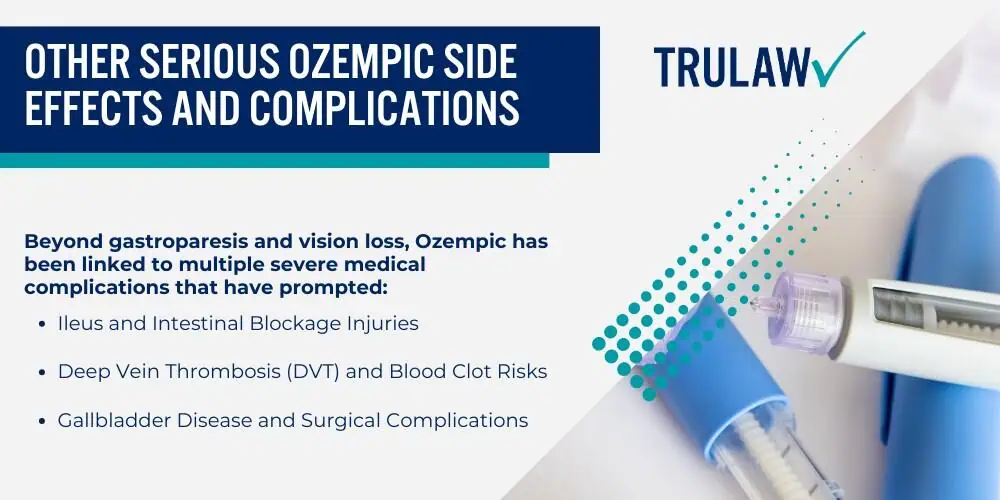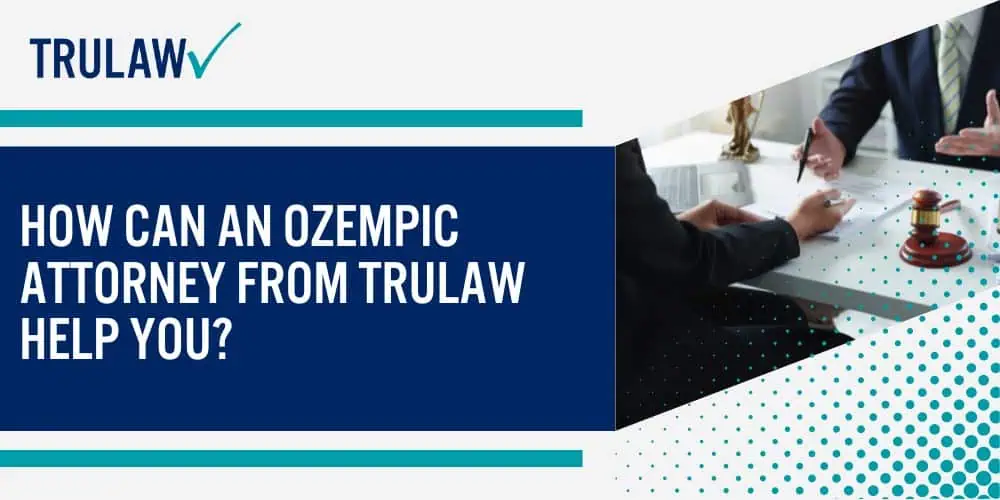These lawsuits primarily allege that Novo Nordisk and Eli Lilly failed to adequately warn patients and physicians about severe gastrointestinal complications, including gastroparesis (stomach paralysis), and emerging vision loss claims involving NAION.
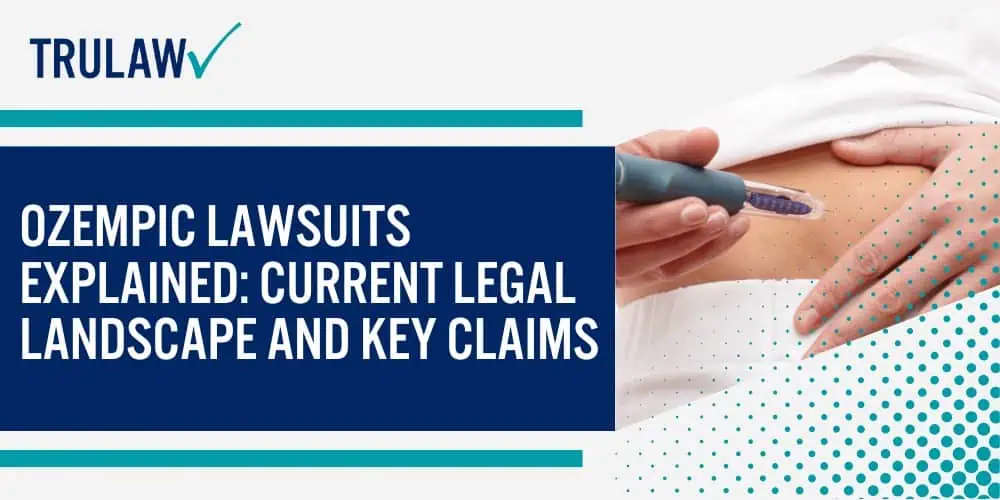
TruLaw partners with GLP-1 litigation leaders to provide comprehensive legal support for individuals harmed by these medications and seeking financial compensation.
Federal Multidistrict Litigation Overview (MDL 3094)
The federal judicial panel consolidated all Ozempic-related lawsuits into MDL 3094 in the Eastern District of Pennsylvania in February 2024, recognizing the common factual questions surrounding whether manufacturers knew or should have known about serious gastrointestinal risks.
The multidistrict litigation structure in the United States District Court offers several advantages over individual lawsuits or class actions by streamlining pretrial proceedings while preserving each plaintiff’s individual claim value.
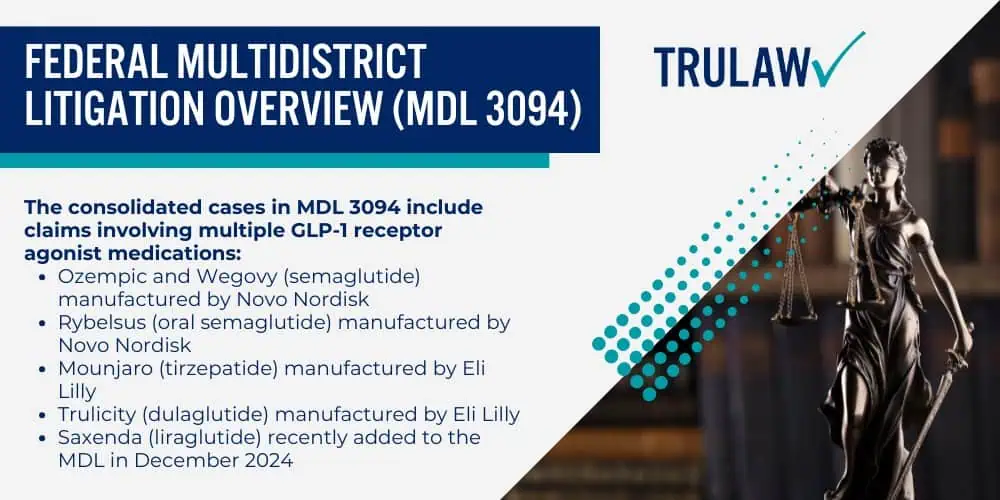
The consolidated cases in MDL 3094 include claims involving multiple GLP-1 receptor agonist medications:
- Ozempic and Wegovy (semaglutide) manufactured by Novo Nordisk
- Rybelsus (oral semaglutide) manufactured by Novo Nordisk
- Mounjaro (tirzepatide) manufactured by Eli Lilly
- Trulicity (dulaglutide) manufactured by Eli Lilly
- Saxenda (liraglutide) recently added to the MDL in December 2024
Unlike a traditional class action where all plaintiffs receive identical settlements, the MDL process for Ozempic cases allows for individualized compensation based on injury severity, duration of use, and specific damages incurred.
The Eastern District of Pennsylvania was strategically chosen as a plaintiff-friendly jurisdiction with extensive experience managing pharmaceutical products liability litigation.
Judge Marston has implemented monthly status conferences accessible via remote viewing for plaintiffs’ lawyers, demonstrating transparency in the proceedings while coordinating:
- Discovery efforts;
- Expert testimony preparations; and
- The May 14, 2025 Daubert hearing that will determine the scientific admissibility of causation evidence.
The rapid growth trajectory from initial filings in August 2023 to nearly 2,000 cases by August 2025 (with more ozempic lawsuits expected) reflects both the widespread use of these medications (with over 33 million patient-years of semaglutide exposure globally) and the severity of reported injuries.
Recent CDC data revealed an estimated 25,000 emergency room visits related to semaglutide weight loss drugs between 2022 and 2023, with the majority involving severe gastrointestinal complications requiring hospitalization.
The surge in Ozempic lawsuits filed has prompted coordinated discovery protocols requiring Novo Nordisk and Eli Lilly to produce millions of pages of internal documents, including clinical trial data, adverse event reports, marketing materials, and communications about known risks.
If you or a loved one experienced severe gastroparesis, vision loss, or other serious complications after taking Ozempic or similar GLP-1 medications, you may be eligible to seek compensation.
Contact TruLaw using the chat on this page to receive an instant case evaluation and determine whether you qualify to join others in filing an Ozempic lawsuit today.
Primary Legal Claims in Filed Ozempic Lawsuits Against Novo Nordisk and Eli Lilly
The core legal theories in the Ozempic litigation center on drug manufacturers’ fundamental duty to warn about known or reasonably foreseeable risks, with plaintiffs alleging systematic failures in safety communications dating back to the drugs’ initial approval.
The master complaint filed in MDL 3094 asserts multiple causes of action against the defendants:
- Failure to warn of gastroparesis and persistent gastrointestinal injuries despite clinical trial data and post-market surveillance revealing these risks
- Negligent design and testing of GLP-1 receptor agonists without adequate safety protocols
- Breach of express and implied warranties regarding drug safety and efficacy
- Fraudulent concealment of known risks from regulatory agencies, physicians, and patients
- Violations of state consumer protection and unfair trade practices laws
- The lawsuit claims include negligent misrepresentation in marketing materials that emphasized benefits while minimizing serious adverse events
The failure to warn allegations form the strongest foundation of these claims, as internal documents and regulatory timelines reveal a pattern of delayed safety communications to the medical community.
While Ozempic’s warning label mentioned “delayed gastric emptying” as part of the drug’s mechanism of action, it failed to explicitly warn that this effect could progress to gastroparesis – a potentially permanent condition requiring hospitalization, feeding tubes, or surgical intervention.
The September 2023 addition of ileus warnings came only after thousands of patients had already suffered severe intestinal blockages, and gastroparesis warnings remained absent from prescription information until regulatory pressure mounted.
Plaintiffs’ attorneys argue that Novo Nordisk possessed clear evidence of gastroparesis risk from multiple sources before marketing these drugs.
Clinical trial data showed participants experiencing severe, persistent vomiting lasting weeks (a hallmark symptom of gastroparesis), yet this information was characterized as temporary “gastrointestinal adverse events” in public communications.
Post-market surveillance through the FDA’s Adverse Event Reporting System (FAERS) database documented hundreds of gastroparesis reports within the first years of approval, establishing a clear safety signal that warranted immediate label updates.
Additionally, scientific literature on other GLP-1 agonists had already established the mechanistic link between this drug class and gastric motility disorders, making the risk foreseeable to any reasonable pharmaceutical manufacturer.
The aggressive marketing tactics employed by both companies compound the failure to warn claims, particularly regarding off-label promotion for weight loss before Wegovy’s specific approval for that indication.
Marketing materials saturated digital, print, and broadcast media with messages about “life-changing” weight loss while omitting meaningful risk disclosures about potential permanent digestive dysfunction.
The companies’ “degradation of trust” in traditional weight management approaches through diet and exercise, as alleged in court filings, misled consumers about the necessity and safety of pharmaceutical intervention for weight control.
TruLaw’s experienced pharmaceutical litigation team evaluates each client’s unique circumstances to build compelling cases demonstrating how inadequate warnings directly caused their injuries.
By partnering with leading mass tort attorneys and medical experts, TruLaw ensures that every aspect of corporate negligence is thoroughly documented and presented.
The upcoming May 14, 2025 Daubert hearing will address the admissibility of expert testimony linking GLP-1 drugs to gastroparesis and other injuries, potentially strengthening all plaintiffs’ positions if the scientific evidence meets federal reliability standards.
